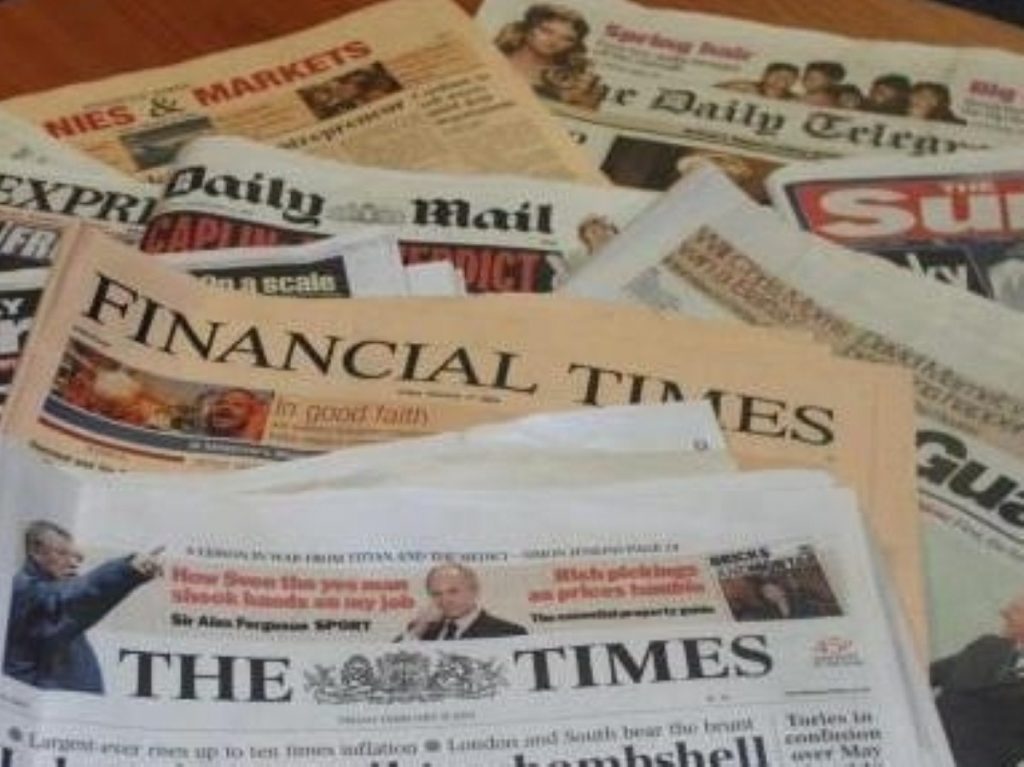Phone-hacking inquiry triggers ‘long grass’ fears
By Alex Stevenson Follow @alex__stevenson
Campaigners fear the probe investigating wrongdoing at News of the World could be "kicked into the long grass".
According to the terms of reference of the inquiry to be presided over by Lord Justice Leveson the second part probing alleged wrongdoing at the News of the World will not commence its work immediately.
Instead the first part, assessing the state of the media more broadly, will be the initial focus while the Metropolitan police's criminal investigation Operation Weeting takes place.


Martin Moore, director of the Media Standards Trust and part of the Hacked Off campaign, told politics.co.uk he was concerned that the inquiry was being approached in the wrong way.
"How can the first part of the inquiry come up with recommendations without knowing what went wrong?" he asked.
"We are very committed to getting the hard-edged bit started at the same time."
Mr Clegg said he was not familiar with the "line-by-line" details of the terms of reference.
But he said that the timetable of the first stage as "very, very important".
In a speech at the Institute for Government thinktank in central London, the deputy prime minister said politicians' "fear" had prevented them from moving against the Murdoch empire until now.
"The hacking scandals will no doubt continue to lurch from one headline to the next, but we must stay focused on the endgame," he said.
"If we get this right, if we get the ball rolling while the demand for change is still strong, we can rebuild the confidence in our major institutions that, this week, has been so badly knocked. And we can make sure this never, ever happens again."
He called for a balance to be struck between protecting press freedoms and mitigating the "worst excesses" of the media.
"I've been accused of many things but being accused of being in the pocket of media moguls is not one of them – not least because they haven't been interested in Liberal Democrats in the first place," he said.
politics.co.uk asked the deputy prime minister whether he would have behaved differently towards Mr Murdoch if he had had more political influence.
"It's one of the roles of the Liberal Democrats to try and push the vested interests to get reform," he said.
"I think there is an opportunity to do things better in the future, and I'm very keen to play an active role in that debate."
Former prime minister Gordon Brown referred to Mr Clegg in his unusual speech in the Commons yesterday afternoon, when he said he had warned the Lib Dem leader about David Cameron's decision to appoint Andy Coulson.
Mr Clegg said he had an "enormous amount of sympathy" on a personal level with Mr Brown, who claims News International's journalists used improper means to uncover the fact that his son Fraser had cystic fibrosis.
His lengthy Commons speech attracted criticism from Mr Clegg, however, who said he sensed "the whiff of rewriting history".
The Lib Dem leader added: "He was prime minister. He was at the very apex of British politics for 13 years. Are we seriously to believe he was hamstrung by dastardly officials?"
Mr Brown had claimed his relationship with Mr Murdoch and News International was "neither cosy nor comfortable".









